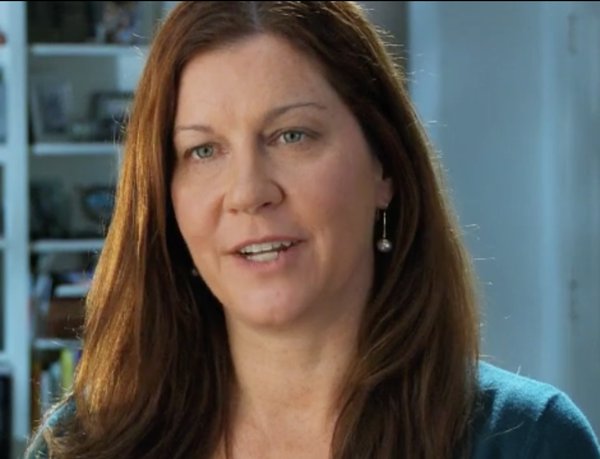“Transform a space and transform a life,” the Space of Her Own website proclaims.
As I sit down with Linda Odell, the Executive Director of the education-based young girl’s mentoring organization, that mantra is brought to life. With a warm smile and a glowing passion to help those in need, Odell has me ready to apply to be a mentor within the first fifteen minutes of our meeting.
The program, which was inspired by the popular television show Trading Spaces, ends in a similar HGTV style: a room transformation. “It’s really the hook that makes the girls want to join in the first place,” Odell said, her eyes beaming as she described the excitement it gives them.
Space of Her Own is about empowering girls to realize their own self-worth and to take the negative, oftentimes traumatic experiences that living in disadvantaged homes can have, and use them as a means to create beautiful visual art, carpentry, and interior design projects.
“It’s the one time of the week that they know they’re going to be successful,” said Odell, speaking of the role that art plays in inspiring attendance, “If they make a mistake they know they can redo it.”
The program is a 3-year commitment, but mentors and girls can drop out at any time after the first year of the program, which runs once a week during the 5th grade school year on Tuesday and Wednesday evenings. In middle school, the SOHO Club, where girls can spend one-on-one time with their mentors and enjoy large and small group activities, is offered more informally.
Girls are referred to the organization by their school social workers and must be seen as someone that will benefit from having a mentor as well as qualifying for free or reduced lunch.
Each week, the girls have “Life Skills” with the Program Manager for the first hour where they discuss topics like puberty, hygiene, friendship, and bullying. Afterward, they will receive a nutritious dinner catered by the Spirits of '76 restaurant in Arlington.
Not every girl begins the program with the same issue, which is why it is mainly targeted at providing structured, one-on-one mentoring for girls that are, as Odell puts it, “vulnerable to not fulfilling their full potential.” Under this umbrella, there are girls from diverse backgrounds that have concerns spanning from social anxiety to problems in the home.
The girls also get to work in a traditional black and white darkroom and later have their printed photographs displayed in an exhibition put on by The Art League at the Torpedo Factory.
SOHO is part of the Alexandria Mentoring Partnership, a group of 10 local mentoring programs with a shared mission to ensure that youth feel valued in their community, have a nurturing non-parent adult relationship, build their self-esteem, and have a sense of purpose.
Mentoring has been proven to lead to beneficial changes in youth and to positively affect their academic achievement and to reduce engagement in risky behavior and depressive symptoms. It costs roughly $1,500 per week for a child to be in the juvenile detention center, a price that could provide a year’s worth of mentorship in the SOHO program, which has a 98 percent success rate.
The National Center for Children in Poverty states that 41 percent of children in the U.S. live in low-income households while 1 in 5 children are poor; for African-American and Hispanic youth specifically, these rates are even higher. Research shows that living in poverty has been linked with a greater risk for poor academic achievement, school dropout, abuse and neglect, and behavioral and socio-emotional difficulties.
Throughout the program, the rooms aren’t the only thing being transformed. According to Azuree Bowman, the Alexandria Mentoring Partnership Coordinator, the program is a learning experience for both mentors and mentees who she says garner an overall sense of well-being during the process on top of gaining new life skills and feeling more socially connected.
The mentors also become more conscious of the problems within their community and are then able to raise awareness to others.
Odell and Bowman both acknowledge that for many of the girls, the program is the high point of their week, where they get a chance to participate in projects and build relationships with a non-parent, caring adult which they may not have outside of their school or immediate family. However, the goal of the organization is not to replace the role of a parent but rather to give girls the extra support that they need to be as successful as they can be.
Participants from ages 23 to 103 are welcome to volunteer, but it is preferred that younger mentors be established in their career path as it will be more likely for them to commit to an extended period of time. Some volunteers have managed to mentor the same girl for well over a decade. “Seniors have been some of our most effective mentors,” said Odell.
In SOHO’s 16 years, there have been many success stories to come out of the program. The night before I met with Odell, she tells me she received a phone call from one of her longest-standing mentors, who has been with her mentee for 10 years. The mentee's sister has had multiple encounters with the criminal justice system and had recently been re-arrested. When she asked her mentee why she felt she had been doing so well compared to her sister, she responded, “I had a mentor, I have you.” I can tell by the expression on Odell’s face that relationships like this are not uncommon in her work, but they are promising.
Be someone who matters to someone who matters. Space of Her Own is currently recruiting 6 additional creative female adult volunteers to provide girls in need with social, emotional, academic and creative enrichment through mentorship and visual arts instructions.
Mentors would need to start by the first week of October.
For more information, email soho@spaceofherown.org or go to spaceofherown.org/mentor.
